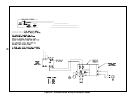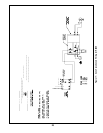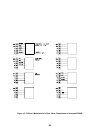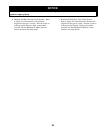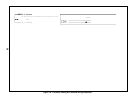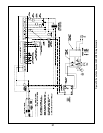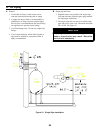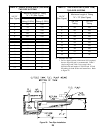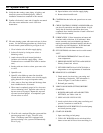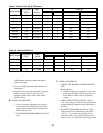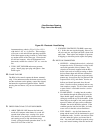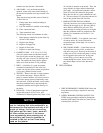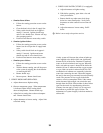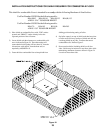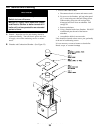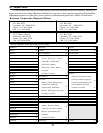
30
VII. System Start-Up
A. Verify that the venting, water piping, oil piping, and
electrical system are installed properly. Refer to
installation instructions contained in this manual.
B. Confirm all electrical, water and oil supplies are turned
off at the source and that the vent is clear from
obstructions.
C. Fill entire heating system with water and vent air from
system. Use the following procedure on a Series Loop
or multi-zoned system installed as per Figure 8 or 9.
1. Close isolation valve in boiler supply piping.
2. Isolate all circuits by closing zone valves or
balancing valves.
3. Attach a hose to bib cock located just below
isolation valve in boiler supply piping. (Note -
Terminate hose at a suitable floor drain or outdoor
area).
4. Starting with one circuit at a time, open zone valve
or valve.
5. Open bib cock.
6. Open fill valve (Make-up water line should be
located directly after isolation valve in boiler supply
piping between air scoop and expansion tank).
7. Allow water to flow into drain until discharge from
hose is bubble free for 30 seconds.
8. When zone is completely purged of air, close zone
valve or balancing valve. Open the zone valve for
the next zone to be purged. Repeat this step until
all zones have been purged. At completion, open
all zone valves or valves.
9. Close bib cock, continue filling the system until the
pressure gauge reads 12 psig. Close fill valve.
(Note - If make-up water line is equipped with
pressure reducing valve, system will automatically
fill to 12 psig.
10. Open isolation valve in boiler supply piping.
11. Remove hose from bib cock.
D. CONFIRM that the boiler and system have no water
leaks.
E. CHECK CONTROLS, WIRING AND BURNER to be
sure that all connections are tight and burner is rigid.
Verify that all electrical connections have been
completed, fuses installed, that the oil tank is filled and
oil lines have been tested.
F. LUBRICATION. Follow instruction on burner and
circulator label to lubricate, if oil lubricated. Most
motors currently used on residential type burners
employ permanently lubricated bearings and thus do
not require any field lubrication. Water lubricated
circulators do not need field lubrication.
G. SET CONTROLS with burner service switch turned
“OFF”.
1. SET ROOM THERMOSTAT about 10° above
room temperature.
2. PRESS RED RESET BUTTON on R4184D Oil
Primary Control and release.
3. SET HIGH LIMIT dial on L8124C/L8148A at
temperature to suit requirements of installation.
H. REMOVE GUN ASSEMBLY
1. Check nozzle size, head size, gun setting, and
positioning of electrodes. This information is
shown in Figure 23, and Tables 4 and 4A.
2. Reinstall gun assembly.
I. VERIFY OIL BURNER SETTINGS BEFORE
STARTING
1. BURNER AIR BAND AND AIR SHUTTER
SETTINGS, see Tables 4 and 4A.
2. OPEN ALL OIL LINE VALVES.
3. Attach a plastic hose to fuel pump vent fitting and
provide a container to catch the oil.
4. REMOVE GAUGE PORT PLUG from fuel pump
and install pressure gauge.
J. START OIL BURNER
1. Open vent fitting on fuel pump.
2. TURN ‘ON’ BURNER service switch and allow
burner to run until oil flows from vent fitting in a



